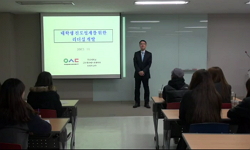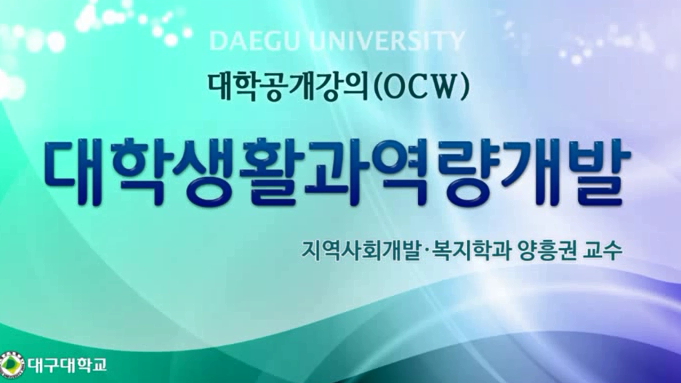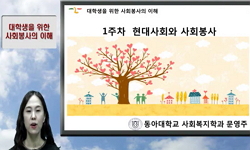This study aims to investigate the extent to which Emerging Adulthood, proposed by Arnett, is experienced by university students and how it is related to to negative emotions. To achieve this aim, the data of 244 aged 19-29 university students was uti...
http://chineseinput.net/에서 pinyin(병음)방식으로 중국어를 변환할 수 있습니다.
변환된 중국어를 복사하여 사용하시면 됩니다.
- 中文 을 입력하시려면 zhongwen을 입력하시고 space를누르시면됩니다.
- 北京 을 입력하시려면 beijing을 입력하시고 space를 누르시면 됩니다.

대학생의 성인모색기 인식과 부정적 정서의 관계* = Relationship between Perception of Emerging Adulthood and Negative Emotions of University Students
한글로보기https://www.riss.kr/link?id=A106915858
- 저자
- 발행기관
- 학술지명
- 권호사항
-
발행연도
2020
-
작성언어
Korean
- 주제어
-
등재정보
KCI등재
-
자료형태
학술저널
-
수록면
1-25(25쪽)
-
KCI 피인용횟수
0
- DOI식별코드
- 제공처
-
0
상세조회 -
0
다운로드
부가정보
다국어 초록 (Multilingual Abstract)
This study aims to investigate the extent to which Emerging Adulthood, proposed by Arnett, is experienced by university students and how it is related to to negative emotions. To achieve this aim, the data of 244 aged 19-29 university students was utilized. Descriptive statistics, ANOVA, and correlation analyses were conducted, and results were as follows. First, the results demonstrate the applicability of the five dimensions of emerging adulthood; respondents tended to agree more on that this is a period of identity exploration, of instability, of feeling in-between, and an age of possibilities. and tended to agree less on that this is a period of focus on others. Second, the results revealed that certain socioeconomic factors, including sex, age, grade, economic activity and a leave of absence, were significantly related to emerging adulthood experience. Third, overall emerging adulthood experience and negative emotions showed significant correlations. .‘A period of instability’ and ‘a period of feeling in-between’ showed positive correlations, and ‘a period of identity exploration’ and ‘an age of possibilities’ showed negative correlations. This study examined whether the emerging adulthood perception and negative emotions of university students were related. Results of the study can help increasing counselor’s understanding on this relatively new concept of developmental stage and can be distinguishably used as basis for effective intervention and establishing counselling and education programs.
참고문헌 (Reference)
1 백지숙, "후기 청소년의 개체화와 자아정체감과의 관계" 20 (20): 269-277, 1999
2 김진영, "한국 성인 집단에서 연령과 우울의 관계" 한국보건사회학회 (26) : 87-113, 2009
3 김종민, "취업 장수생 늘어...상반기 신입사원 최고령 31세"
4 국회예산정책처, "청년층의 첫 직장 입직 연령과 결혼"
5 강시은, "청년이 지각한 헬리콥터 부모역할과 심리적 적응의 관계: 부모에 대한 친밀감과 부모의 진로기대 부담의 매개효과" 서울대학교 대학원 2017
6 이옥형, "청년심리학" 집문당 23-24, 2006
7 한국은행, "청년실업의 이력현상 분석"
8 이병희, "청년기에서 성인기로의 이행과정 연구Ⅰ: 우리나라의 청년기에서 성인기로의 이행실태" 한국청소년정책연구원 2010
9 안선영, "청년기에서 성인기로의 이행과정 연구 Ⅱ" 한국청소년정책연구원 2011
10 김정은, "청년기 발달과업 달성이 청년 웰빙에 미치는 영향" 한국아동가족복지학회 24 (24): 171-193, 2019
1 백지숙, "후기 청소년의 개체화와 자아정체감과의 관계" 20 (20): 269-277, 1999
2 김진영, "한국 성인 집단에서 연령과 우울의 관계" 한국보건사회학회 (26) : 87-113, 2009
3 김종민, "취업 장수생 늘어...상반기 신입사원 최고령 31세"
4 국회예산정책처, "청년층의 첫 직장 입직 연령과 결혼"
5 강시은, "청년이 지각한 헬리콥터 부모역할과 심리적 적응의 관계: 부모에 대한 친밀감과 부모의 진로기대 부담의 매개효과" 서울대학교 대학원 2017
6 이옥형, "청년심리학" 집문당 23-24, 2006
7 한국은행, "청년실업의 이력현상 분석"
8 이병희, "청년기에서 성인기로의 이행과정 연구Ⅰ: 우리나라의 청년기에서 성인기로의 이행실태" 한국청소년정책연구원 2010
9 안선영, "청년기에서 성인기로의 이행과정 연구 Ⅱ" 한국청소년정책연구원 2011
10 김정은, "청년기 발달과업 달성이 청년 웰빙에 미치는 영향" 한국아동가족복지학회 24 (24): 171-193, 2019
11 주경필, "성인도래기(Emerging Adulthood)의 개념정립을 통한 국내 청년복지정책에 대한 소고(小考)" 한국청소년복지학회 17 (17): 189-213, 2015
12 강상경, "사회경제적 지위가 우울수준에 미치는 영향의 생애주기별 차이에 대한 탐색적 고찰" 한국정신건강사회복지학회 (30) : 332-355, 2008
13 대학저널, "대교협․국회교육희망포럼, "대학생 불안 해소 방안 모색한다""
14 Cohen, P., "Variations in Patterns of Develop mental Transitions in the Emerging Adulthood Period" 39 (39): 657-669, 2003
15 Bachman, J. G., "Transitions through adolescence: Interpersonal domains and context" Lawrence Erlbaum Associations, Inc 111-140, 1996
16 Billari, F., "Towards a new pattern of transition to adulthood" 15 : 59-75, 2010
17 Macmillan, R., "The structure of the life course : Classic issues and current controversies" 9 : 3-24, 2005
18 OECD family database, "The structure of families"
19 Kessler, R. C., "The relationship between age and depressive symptoms in two national surveys" 7 (7): 119-126, 1992
20 Arnett, J. J., "The new life stage of emerging adulthood at ages 18-29 years : Implications for mental health" 1 (1): 569-576, 2014
21 Nelson, L., "The influence of culture in emerging adulthood : Perspectives of Chinese college students" 28 (28): 26-36, 2004
22 Arnett, J. J., "The developmental context of substance use in emerging adulthood" 35 (35): 235-254, 2005
23 Lovibond, P. F., "The Structure of Negative Emotional States : Comparison of the Depression Anxiety Stress Scales(DASS)with the Beck Depression and Anxiety Inventories" 33 (33): 335-343, 1995
24 이은현, "The 21-Item and 12-Item Versions of the Depression Anxiety Stress Scales: Psychometric Evaluation in a Korean Population" 한국간호과학회 13 (13): 30-37, 2019
25 Sánchez-Queija, I., "Spanish version of the Inventory of the Dimensions of Emerging Adulthood (IDEA-S)" 2018
26 Lorant, V., "Socioeconomic inequalities in depression : a meta-analysis" 157 (157): 98-112, 2003
27 Smith, D. C., "Self-perceived emerging adult status and substance use" 28 (28): 935-941, 2014
28 Mirowsky, J., "Life course trajectories of perceived control and their relationship to education" 112 (112): 1339-1382, 2007
29 Arnett, J. J., "Learning to stand alone: The contemporary American transition to adulthood in cultural and historical context" 41 : 295-315, 1998
30 Erikson, E. H., "Identity: Youth and crisis" Norton 1968
31 Brooks-Gunn, J., "Health risks and developmental transitions during adolescence" Cambridge University Press 190-219, 1997
32 Barry, C. M., "Friendship and Romantic Relationship Qualities in Emerging Adulthood: Differential Associations with Identity Development and Achieved Adulthood Criteria" 16 : 209-222, 2009
33 Hill, J. M., "Experiencing emerging adulthood in the Netherlands" 18 (18): 1035-1056, 2015
34 Schulenberg, J. E., "Emerging adults in America: Coming of age in the 21st century" APA Books 135-172, 2006
35 Arnett, J. J., "Emerging adulthood: The Winding Road from the Late Teens through the Twenties" Oxford University Press 2004
36 Arnett, J. J., "Emerging adulthood in Europe : A response to Bynner" 9 (9): 111-123, 2006
37 Sussman, S., "Emerging adulthood : developmental period facilitative of the addictions" 37 (37): 147-155, 2014
38 Arnett, J. J., "Emerging adulthood : What is it, and what is it good for?" 1 (1): 68-73, 2007
39 Reifman, A., "Emerging adulthood : Theory, assessment and application" 2 : 37-48, 2007
40 Arnett, J. J., "Emerging adulthood : A theory of development from the late teens through the twenties" 55 : 496-480, 2000
41 Marcia, J. E., "Development and validation of ego-identity status" 3 (3): 551-558, 1966
42 Galambos, N. L., "Depression, self-esteem, and anger in emerging adulthood : seven-year trajectories" 42 (42): 350-365, 2006
43 Nielsen, A. C., "Depression in ambulatory medical patients prevalence by self-report questionnaire and recognition by nonpsychiatric physicians" 37 (37): 999-1004, 1980
44 Hofstede, G., "Culture and organizations" 10 (10): 15-41, 1980
45 Macek, P., "Contemporary Czech emerging adults : Generation growing up in the period of social changes" 22 (22): 444-475, 2007
46 Arnett, J. J., "Bridging cultural and developmental approaches to psycho logy: New syntheses in theory, resear ch, and policy" Oxford University Press 255-275, 2011
47 Dutra-Thome´, D., "Brazilian version of the inventory of the dimensions of emerging adulthood : Investigating the current transition to adulthood" 25 : 901-912, 2017
48 Baggio, S., "An 8-item short form of the Inventory of Dimensions of Emerging Adulthood(IDEA)among young Swiss men" 38 (38): 246-254, 2015
49 Mirowsky J., "Age and depression" 33 : 187-205, 1992
50 Dacey, J., "Adolescent development" Brown & Benchmark Publishers 1997
51 김은정, "20대 청년층의 새로운 생애발달단계로서 ‘성인모색기’(Emerging Adulthood)에 관한 탐색 연구" 한국사회역사학회 17 (17): 83-129, 2014
52 통계청, "2017년 인구동향조사: 혼인 통계"
동일학술지(권/호) 다른 논문
-
장애영유아의 놀이와 관련된 교사의 경험과 역할에 대한 질적 메타분석
- 한국생애학회
- 진재섭
- 2020
- KCI등재
-
퇴직한 중년 남성의 인지적 유연성이 삶의 만족도에 미치는 영향과 생성성의 매개 효과
- 한국생애학회
- 이경재
- 2020
- KCI등재
분석정보
인용정보 인용지수 설명보기
학술지 이력
| 연월일 | 이력구분 | 이력상세 | 등재구분 |
|---|---|---|---|
| 2026 | 평가예정 | 재인증평가 신청대상 (재인증) | |
| 2020-01-01 | 평가 | 등재학술지 유지 (재인증) |  |
| 2017-01-01 | 평가 | 등재학술지 선정 (계속평가) |  |
| 2016-01-01 | 평가 | 등재후보학술지 유지 (계속평가) |  |
| 2015-04-21 | 학회명변경 | 영문명 : Korean Association of Life-span Studies: KALS -> Association of Life-span Studies: ALS |  |
| 2014-01-01 | 평가 | 등재후보학술지 선정 (신규평가) |  |
학술지 인용정보
| 기준연도 | WOS-KCI 통합IF(2년) | KCIF(2년) | KCIF(3년) |
|---|---|---|---|
| 2016 | 1.27 | 1.27 | 1.68 |
| KCIF(4년) | KCIF(5년) | 중심성지수(3년) | 즉시성지수 |
| 1.48 | 1.38 | 2.177 | 0.41 |




 KCI
KCI





